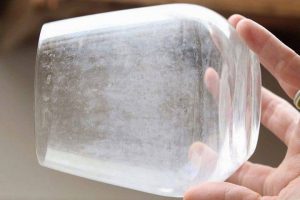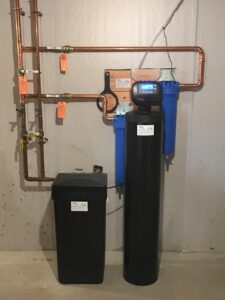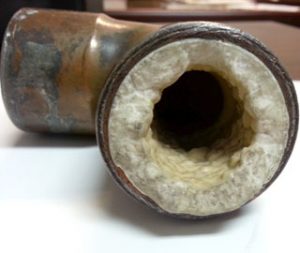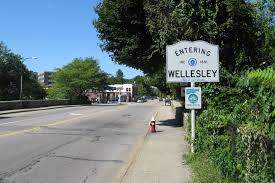A water softener is typically installed to remove hard water minerals (magnesium and calcium) and dissolved iron and manganese through a technology called Ion Exchange. To remove particulate iron or manganese, a properly sized sediment filter is required. Hard water can make it very difficult to clean dishes, glassware, showers, bathtubs and other plumbing fixtures. It can also make it difficult to wash your skin and hair as the hardness inhibits soaps and shampoos from fully doing their job. Showering in soft water is a noticeable change in experience if you have hard water.

Hard Water Scale
Additionally, hard water can eventually have damaging affects on your plumbing distribution system as well as on water using appliances. Hot water heaters can have their useful lives reduced due to hard water, for example.

High Efficiency Water Softener
OTHER CONSIDERATIONS

Scale build-up
Public water suppliers must add chemicals to the water to disinfect, or kill dangerous bacteria and other potentially harmful substances in the water as well as for controlling pipe corrosion and other purposes. Consequently, the net result of this is safer water, but may include aesthetically displeasing tastes and odors, etc. Chlorine is probably the most typical of these chemicals. In following, for more information on the treatment processes used in Wellesley’s water supply and water testing results, see the link at Water test results archives. The Wellesley municipal water supply comes from ten wells within the town and from the regional Massachusetts Water Resources Authority (MWRA), while Wellesley College has its own water supply.



